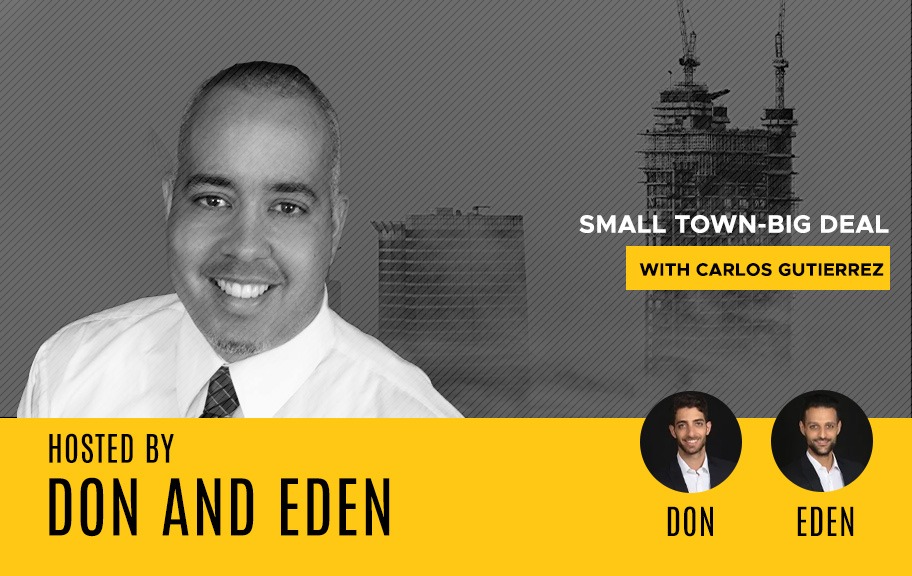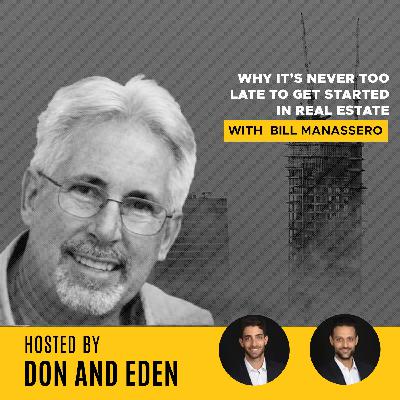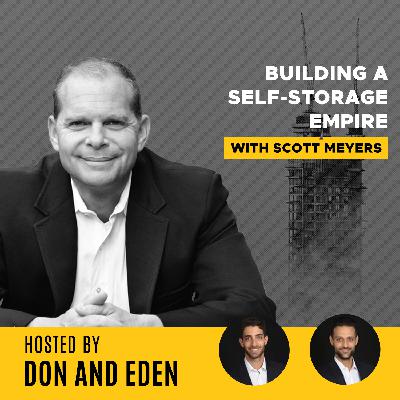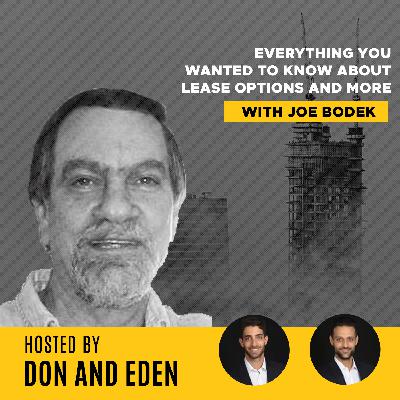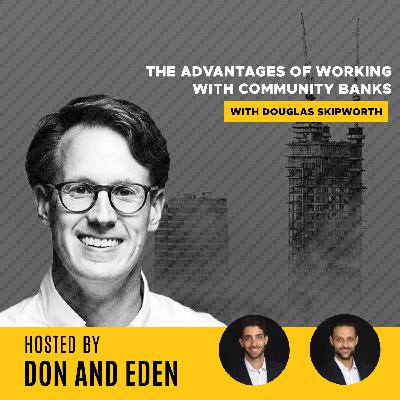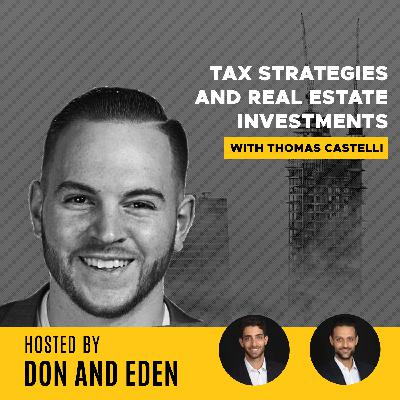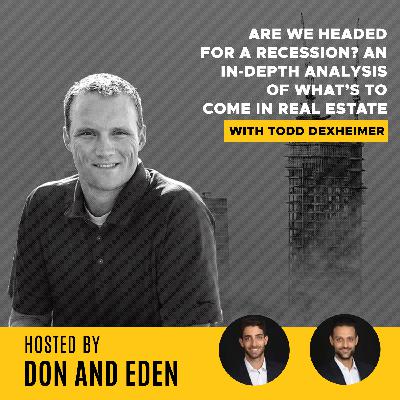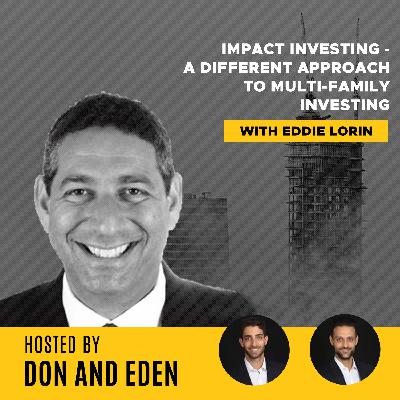DE 23: Forensic Analysis in the Multifamily Sector- with Bill Ham
Description
Today’s episode guest is Bill Ham- a real estate guru & mentor with 14 years of commercial real estate experience based in Atlanta, GA. He owns and operates Phoenix Residential Group, LLC and Phoenix Residential Management, LLC. Learn how Bill walked away from being a corporate pilot to create a large portfolio of multifamily assets.
Bill discusses how he started his journey into the world of real estate, how he sourced for his first deal, and how he was able to switch from the single-family apartment to the multi-family sector. Learn what to look out for when sourcing for deals and how he teaches his students to read the profit & loss statement.
Highlights:
- Benefits Of A Multi-family Over Single-family Apartments?
- Key Points when Sourcing a Deal
- Thoughts on the Future of the ‘C’ space
- Predictions for the Real Estate Market
Connect with Bill:
Email: Bill@phoenixresgroup.com
-----------------------------------------------------
TRANSCRIPTION
Don: Hello, dear listeners. I hope you guys are enjoying the episodes and the content we give. Remember if you want to get in touch with us, you’re always welcome to do so and send us an email at hello@donandeden.com. So please do, we want to know how you feel and always appreciate the feedback.
Today, I’m going to interview Bill Ham. Bill is a multifamily investor and mentor and one of the people I consider a multi-family guru. I would say his strength is his ability to see the hidden things most people are going to miss while underwriting and his profound understanding of the real estate market that enables him to predict market trends and shifts. Also, on a personal note, Bill and I have already established a relationship in the past, and I’m very happy to have him on the show. So without further ado, let’s start.
Intro: Welcome to the real estate investing podcast with Don and Eden, where we cover all aspects of real estate investing with underwriting attention to multi-family apartment buildings and off Market strategies.
Don: Hey Bill, welcome to the show. It's so good to have you here.
Bill Ham: Thank you, good to be here.
Don: Yes, so, I know you're one of the best deal analysts that out there, So you can analyze a deal better than most people that I've ever met.
Bill Ham: I appreciate that.
Don: We've had a few conversations in the past where you've helped me analyze deals.
Bill Ham: Yeah A few of them.
Don: I know your ability and how good you are; And so I would appreciate it if you could talk a little bit about yourself and your background and how you started your real estate career.
Bill Ham: I have been in this business for about fifteen years now, and I was a corporate pilot by trade, and one of my very first deal was a duplex, and the duplex was making $300 a month cash flow. I had saved up $10,000 from my career, and I walked away from Aviation one duplex ten thousand bucks in $300 a month in cash flow; this was in ‘05. So headed into the hundred-year recession that was so bad, but I survived it, and I don't recommend everyone do that. By the way, I was 28 years old at the time, you know, no family, no children, and so it was a little bit easier for me to make that sort of commitment, but that's what I realized I needed to do is commit and focus and that has been the number one success trait that I think I have and have noticed in other successful people; the ability to focus. That's how I got started, and then just kind of climb the ladder, flip houses for a while and then I did a 9 unit and then a 27 units and a 20 units and a 44 unit then a 152, so I grew I didn't go from 2 to 100, I mean, I started from the smaller assets and then built out of it a pretty big portfolio over the years.
Don: Let’s talk about that transition from doing single families and flipping homes, which is how a lot of people start, and it's how I started in real estate and then the transition into multifamily, you said something about nine units, please tell us more about that transition.
Bill Ham: I went in and heard someone speak about multi-family, someone who is no longer in the business. I listen to a lecture by this individual and I was hooked on it when he started talking about the economy of scale and know so much easier to manage and to have more units under one roof and I knew from a business perspective that was the future and that you can flip houses and do single-family and that’s great, but you're never going to get the zeros behind that model, then you're going to get in larger commercial especially multi-family. That was my thought, I needed to go bigger out more, and I did, and I did a lot of creative financing at the beginning, lots of seller financing, a lot of lease options after I had built a small portfolio. That's when I got into syndication, which is bringing on partners and raising down payment money from other investors, that’s how I made the transition, nice and slow.
Don: that’s exactly how I feel about this, When you flip homes, you make good money and you have a very good lifestyle, you can travel the world, you could buy fancy cars, and you can make a really good money, money that most people don’t make, but the problem about this is that you don't really create a passive income or a steady passive income that you can retire when you're 35 or 40, and that's very achievable with Multi-Family. Was that the mindset was that what guided you to move forward from flipping houses?
Bill Ham: It was ultimately, I looked at all of the large commercial investors and owners, and none of them own houses, and so I thought, why do the big people not own lots of houses? You know, why do they own commercial as supposed to single-family and the reason is because it's a business and it's easier if you're trying to grow and operate a business, your product really should be in a commercial space, but If you're trying to do a side business, you know a little bit extra money here and there, then single families are a great way to go.
But if you're really trying to build a big portfolio, for example i can manage a Hundred Apartments at the same time you can manage 10 houses, the time in the economy of scale is just not in the single-family market and then I always use a sentence that multifamily was built to be an investment model, houses were built to be someone's home. So multifamily makes money by Design, houses make money when you steal. You gotta go out and steal the value on a house for the numbers to work out for it to be a rental property because it was never built to be so, but multi-family is.
Don: Yeah, that’s exactly how I started, me and my partner, you know, we got that Steal's on single families, and then we were able to acquire them and great wealth, but we noticed as we scaled up at that it's not scalable, that’s exactly the difference, it going to create nice passive income for us, but it's not going to be quiet and like free really because we still have a lot to do with during which includes fixing and in doing some other things, maintenance especially; it's not scalable. So, what I realized recently is that it's not just about an apartment, it’s more about units. It doesn't matter what type of commercial property you buy, you could buy self storages and have a hundred units there, or you could buy a mobile home park and have 50 units there, or you could buy a multi-family and have a hundred Apartments. It's all the same thing. You were right; you buy a business, I agree completely.
Bill Ham: Yeah, it's whatever asset class makes sense to you, whatever you enjoy, what you know your investors want, That's the model. So mobile homes are great, storage is great; I just do apartments. It's not because apartments are better than one of the others, it's just what I do, and I have a lot of friends that make money on mobile home parks, have a lot of friends make money in storage but I don't and that doesn’t mean all of those aren’t assets.
Don: Definitely, you got to choose and become the best at what you do. So when you are at your peak as far as your multifamily portfolio, what was the biggest amount of properties that you held? As a general partner [a GP]?
Bill Ham: yeah, have held over a thousand units, 1000 unit at the peak of my career, and I have actually been selling off Over the last two years and am down now to about 400 units that am holding currently.
Don: Okay, so you sold 600 units in the past three years.
Bill Ham: Yes roughly.
Don: so let's dig into that, Why are you selling properties right now? Is it about the economy, the recession, or the overheated Market?
Bill Ham: Not really. It's not about the economy or Market. It's more about Market cycle and understanding the rise and the fall of the market cycle and what Market cycle you're in; this is a question I get a lot of times , are we going into a recession or are we going into a down cycle, so we shouldn’t buy real estate; No no, that's a complete misunderstanding of Market Cycles. If everybody only bought real estate in a recession and never buy real estate any other time, then everyone would go home for 5 years, and the whole real estate industry would collapse, and that obviously doesn’t really occur, and that's one of the greatest things about multi-family, and that it's a cash flow model. The value only matters twice, when the time you buy and when you sell. So as long we get the debt, that allows us an Exit strategy on the


